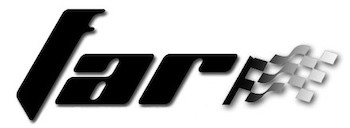Selon USATODAY la marque aurait admis que ses modèles équipés du V6 TDI 3 litre ont fraudé les normes de rejets ces 7 dernières années.
Pas avec le même logiciel que les 2.0TDI mais avec une autre version contrôlant le système d'échappement avec un mode dégradé (mais qui serait "légal" en europe

). Bref, 85 000 merveilles supplémentaires peuvent être concernées,
Les ventes de Cayenne, Q7, Q5, A6, A7, A8, Touareg V6TDI sont suspendues, et la marque risque une amende de 37 500 $ par voiture soit un risque d'amende de près de 21 Milliards de $ au total...

Le texte original :
"Volkswagen Group's emissions scandal grew Friday as regulators said the automaker had admitted that its 3-liter diesel vehicles from the last seven years had violated clean-air standards.
The Environmental Protection Agency and California's Air Resources Board said company officials acknowledged Thursday in a meeting that emissions violations the EPA had previously alleged — most from the last couple of model years — go much further.
Now it includes all Volkswagen and Audi U.S. vehicles with 3-liter V-6 diesel engines from the 2009 to 2016 model years, the regulators said.
That covers 85,000 vehicles in the U.S., according to EPA spokeswoman Julia Valentine.
Volkswagen had admitted to installing "alternate exhaust control devices" in the vehicles, a violation of air-quality laws, says Dave Clegern, spokesman for the California ARB.
The agencies are also testing the vehicles to determine whether the equipment qualifies as so-called "defeat devices," which the company has already admitted it installed on up to 11 million diesel cars worldwide to cheat emissions standards.
Brad Stertz, a spokesman for Audi, said the company has admitted that it did not notify the EPA about the extra emissions control equipment. But he declined to acknowledge that the system qualifies as a defeat device.
"So we agreed to take all of the 3-liter disel engines, look at the software, recalibrate it and then we'll resubmit it to the agencies so they're comfortable with how it's performing and what it's doing," Stertz said.
He said that would require an investment in the "double digits" of millions of dollars.
The latest accusation extends the scandal beyond small cars to a larger number of heftier vehicles. The EPA had already accused the automaker of installing the defeat-device software on about 10,000 3-liter SUVs and luxury cars from 2014 to 2016. Those models included the 2015 and 2016 Volkswagen Touareg and Audi's A6, A7, A8 and Q5. It also drew in the 2014 to 2016 Porsche Cayenne.
Friday's action follows the EPA's previous finding that Volkswagen installed a "defeat device" on nearly 500,000 Volkswagen diesels with 2-liter engines that went into smaller VW and Audi cars in the U.S. to cheat on emission tests.
EPA: VW cheated on Audi, Porsche diesel SUVs, too
The company has stopped selling all of the diesel cars and SUVs accused of having the illegal software.
"The most unfortunate aspect of this whole situation for Volkswagen is they have to start the healing process and the repairing process for their brand, and you can't do that while the scandal is still growing," Kelley Blue Book analyst Karl Brauer said in an interview. "You have to feel like you've fully identified — or maybe the better word is disclosed … all aspects of your scandal before you can move forward."
Audi's Stertz said the system installed on the 3-liter V-6 models is "not the same software with the same function that was identified" in the initial defeat-device software the company has publicly acknowledged on its 2-liter, four-cylinder models .
He also said the software is legal in Europe.
EPA can levy fines of up to $37,500 per vehicle for Clean Air Act violations, meaning Volkswagen could face more than $21 billion in fines if the company is proven to have installed defeat devices on the latest round of models in addition to the previous offenders.
The company also faces a litany of government investigations and lawsuits, including a U.S. Justice Department criminal probe.
In a separate announcement Friday, the company said it was slashing spending on new products, factories and initiatives by $1.1 billion a year."








![[Image: 180120055330387566.jpg]](http://nsa39.casimages.com/img/2018/01/20/180120055330387566.jpg)
![[Image: 180120055330611369.jpg]](http://nsa39.casimages.com/img/2018/01/20/180120055330611369.jpg)
![[Image: 180120055329790341.jpg]](http://nsa39.casimages.com/img/2018/01/20/180120055329790341.jpg)
![[Image: 180120055330100877.jpg]](http://nsa39.casimages.com/img/2018/01/20/180120055330100877.jpg)
![[Image: 180120055329844104.jpg]](http://nsa39.casimages.com/img/2018/01/20/180120055329844104.jpg)
![[Image: KxrXNtJ.png]](https://i.imgur.com/KxrXNtJ.png)


 ' />
' /> 

